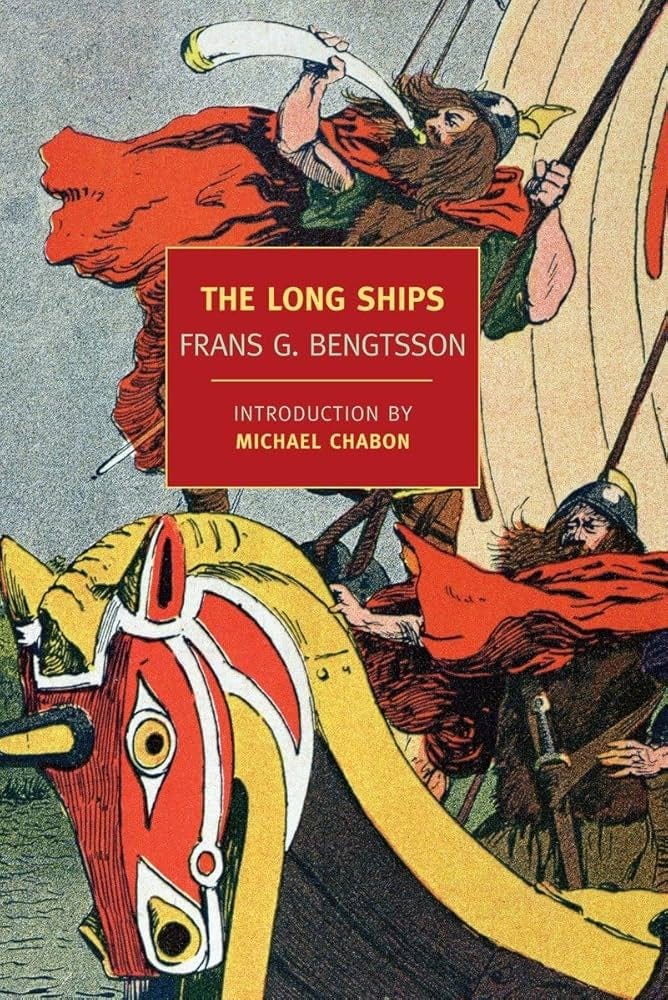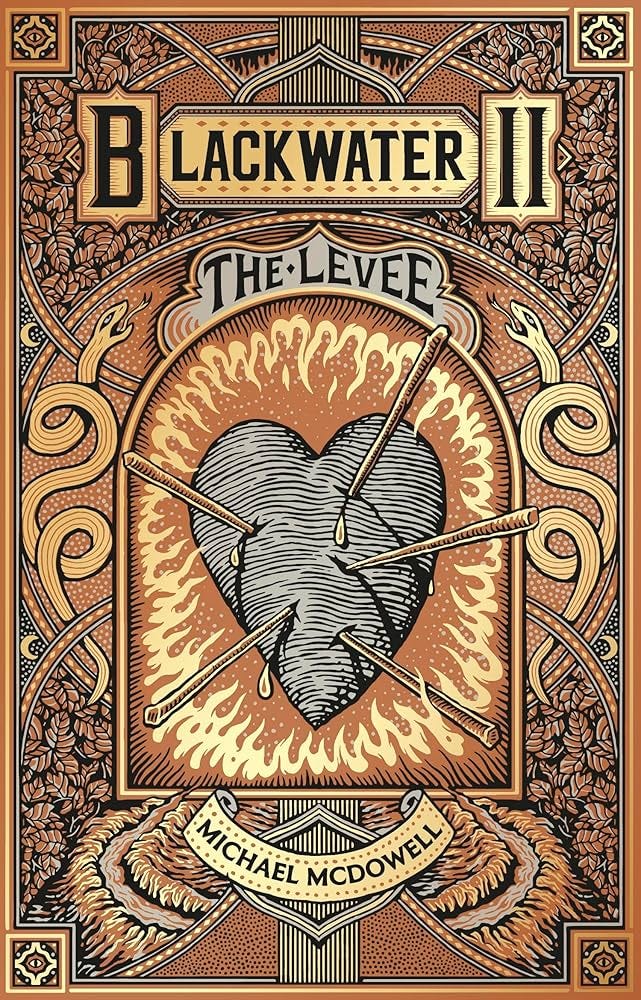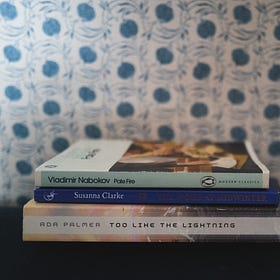January 2025 Reads
John Williams, Homer, Adolfo Bioy Casares, Frans Bengtsson, Susanna Clarke
This post is too long for email, so please do click through to the app or your browser to read the whole thing.
Welcome to one of my monthly wrap-up posts, where I briefly review everything I read! I read widely across many genres, from classics to literary to speculative fiction. With these I’m hoping to shed some light on backlist gems, perhaps push you to read outside your genre comfort zone, and also highlight which new releases are worth your time.
I had a truly excellent start to my year reading-wise, and it is that rare occasion when I have no extra notes for you—let’s get straight to it.
Links to the books below are affiliate links.

Butcher’s Crossing by John Williams (1960)
By this point it seems like almost everyone has read John Williams’ Stoner after its ‘rediscovery’ sometime in the last twenty years or so (the rediscovery that just keeps going!) And as it trickled down into bookfluencer spaces, you might see that some of the delirious hype around it has led to an inevitable backlash here and there. I admit, I do love Stoner. It is that quiet kind of novel that appeals to me, with its carefully weighed account of a man’s life. Not a perfect man, or even an exceptionally good man. Just a man. One who loves literature and books, and therefore already has an in with Williams’ target audience.
It’s been a few years since I read Williams’ most famous novel, so it’s possible that a reread might change my mind again, but right now I think I like the novel that preceded it, Butcher’s Crossing, even more. Will Andrews, a Harvard boy, has abandoned his life in Massachusetts to explore the American West. Inspired by Emerson, Andrews hopes that he will find true wilderness there, and, we presume, a sense of self. His notion of what wilderness is, and what he’s looking for, are somewhat vague. Upon his arrival in Butcher’s Crossing, he realises the only way to get ‘out there’ (out where?) is to agree to finance a buffalo hunt with the enigmatic hunter, Miller. Miller claims to have been to an untouched valley where there are still buffalo as in the old days and has always wanted to return to hunt them. You see, it’s sometime in the 1870s, and if Andrews were interested in hunting buffalo (which he’s not, really), he’s far too late. Almost the entire population of North American buffalo has already been killed. With a wretched single-mindedness, this small group of men set out for this hidden valley to harvest these last remaining hides.
Something I think people like about Stoner is its restraint—the way grand emotional notes are played quietly, not to reduce their impact but in fact to show just how far the resonance carries. Here, Williams’ restraint increases both the tension of the book—we are always waiting for the bad thing to happen—but also the horror, which we experience as a groundswell as the novel goes on. Why do none of these men stop? Can’t they see what they are doing? The horror comes from the sheer emptiness of their endeavour; it is brutal, yes, but it is also pointless, even by their own morally dubious standards. Whilst not in first person, Williams describes Andrews’ thoughts, his physical reactions to the events around him—we are in his point of view. And yet when we close the book we feel this emptiness pouring off him still, this unfillable void within him. We are not close to him at all, and neither he nor we know what he is looking for, or if he’ll ever find it. But we know that whatever it is, it certainly does not engage with ‘Nature’ or nature in any meaningful way.
It is hard to describe Williams’ prose. For large swathes of his novels, it is self-effacing, advancing the plot, the themes, the rhythm of the book. It works quietly on you. But then he will suddenly hit you with a sublime passage or two. It is never complex, but it is always beautiful. All in all, this is a masterful book that caught me in its spell, and didn’t let me go until the end.
The Long Ships by Frans G. Bengtsson trans. by Michael Meyer (1941-1945)
This book was an awful lot of fun. It is a Swedish novel from the early 1940s, written in the style of an Icelandic saga—though of course updated here and there with a few twentieth century techniques. It’s set in the late 10th century, and centres around Orm Tostesson, nicknamed Red Orm for his hair colour and fiery temper in battle. As a Viking warrior, Orm travels all around the world, from his native Scandinavia through Northern Europe, the Mediterranean and down to Muslim Spain and back. Admittedly, there is a lot of fighting and ‘booty’. But it is a well-balanced book—especially with the inclusion of more intimate and domestic moments—and Bengtsson has a gift for storytelling. Perhaps toward the very end of this five-hundred-page tome (originally split into two volumes with two books each) I felt it becoming repetitive, but in general the stories within are engaging and entertaining. And this coming from a person who hates watching pretty much any action scene in any film ever made (with a few notable exceptions).
Before I say anything more I must speak about the wonderful translation by Meyer. Obviously I can’t read the Swedish, but whatever Meyer did here makes this novel so readable and enjoyable for English speakers. Crucially, he managed to keep Bengtsson’s humour (so hard in translation!) It’s the humour that really makes this book, the wry asides and comments. Whilst the characters are fairly flat in the way you would expect from a saga, the humour draws them out into three-dimensionality. And once they’ve been drawn out, you find you care for them, and moments of poignancy begin to come through.
Naturally the novel is pretty interesting from a historical perspective, too. I learnt more about Vikings, and about the 10th century, and about the encroachment of Christianity on Scandinavian shores. Orm’s encounters with Islam and Judaism were sensitively and unexpectedly rendered. One thing I appreciated about Bengtsson’s interpretation of Viking life is his resistance to the kinds of macho mythologising that you might otherwise get. No doubt there was violence and an adherence to a certain kind of masculinity, but life—as always—was much stranger, less conformist, than one imagines.
I’m going to be re-reading The Greenlanders this month, which is American novelist Jane Smiley’s take on an Icelandic saga, and I very much look forward to comparing the two. In the meantime, I highly recommend The Long Ships. In the NYRB intro, Michael Chabon says that it has “the potential to please every literate human being in the entire world”. That might be overstating it, but I do think that most of you would be hard pressed not to enjoy it.
The Odyssey by Homer trans. by Emily Wilson (-800)
I’ve always been a little reluctant to delve into the Classics. Mostly I think because of the cultural discourse that surrounds them, both in and out of academia. They seemed to lend themselves too well to a type of literary snobbery that I don’t really approve of. Or outside of that, to a sense of heroic masculinity that makes me want to roll my eyes.
But of course, as with most things like this, I’ve done myself a disservice there. I thought The Odyssey would be something I would kind of slog through in preparation for my reading of Ulysses later this year. Turns out, it’s really great, actually! Who knew!? Only, perhaps, the many thousands of people who have read it and proclaimed it worth reading for hundreds of years.
I was expecting an action-packed saga which would move abruptly from incident to incident, each of which I assumed would involve rather obscure mythical creatures, and a lot of high-register praise of things like violence and honour and adventuring. What I got instead was a much more intimate and deeply felt poem about one man’s homecoming. What does it mean to come home, and can you ever really come home after a long time away? As in The Long Ships, domestic scenes, even nature writing, provide balance to the whole. In fact, that which I thought of as The Odyssey—the bit where Odysseus encounters Circe and the cyclops and gets tempted by nymphs, that kind of thing—takes up only a four of the twenty-four books, and is narrated after the fact in first person by Odysseus himself. In general there were so many techniques here that still felt fresh and modern, even. Cinematic scene changes, a narrative that starts halfway through the action, and where we don’t even meet Odysseus himself until a few books in. It was eminently readable, and more than that—enjoyable!
I suppose we must talk translation! I read the Wilson because I read this Substack article of hers and liked what I gathered of her translation approach. This was confirmed for me by her translator’s note and introduction when I got my hands on a copy. She knows, we all know, that translation cannot truly be ‘faithful’ to the original, certainly not with a text as ancient as this. She tries to capture some of the feel of the original, which is apparently not written in a particularly high style, and does have a rhythm and beat to it. I suspect she’s right that a translation wrought in more contemporary language does reveal some of the strange and uncanny parts of this poem more than if you archaise or elevate it, and I appreciated that about her version. I think the tension between the alien and the familiar is one of the things that makes this text so fascinating, and so enduring. I think I probably will try another translation (or two!) in my lifetime. But for now I was very happy with my introduction through Wilson. I have no misogyny-inflected hangups about that.
The Invention of Morel by Adolfo Bioy Casares trans. by Ruth L. C. Simms (1940)
Alone on a tropical island, a nameless protagonist pens a diary for an unknown reader. He is a fugitive from his native Venezuela and he came to the island as a kind of refuge; on it are a museum, a chapel and a swimming pool. One morning he finds himself suddenly surrounded by people who seem to have appeared from nowhere, and, fearing they will report him to the authorities, he races down to the nearby marshland where he waits in hiding. Thus begins Bioy Casares’ strange volume which his friend Jorge Luis Borges called “perfect”.
This is a beguiling little novel that I would put in the same category as My Death and Pedro Páramo. Short, thought-provoking, weird, and sitting on the boundary where genre encounters literary. And like these novels, I don’t want to reveal too much lest I ruin the magic of this book for you. It is atmospheric, mystifying and provocative, and sometimes all too prescient for a novel written in 1940.
This wasn’t a resounding success in book club, mostly because of one or two plot points that loomed too large and made for sometimes uncomfortable reading, especially for our modern eyes. I think I ultimately appreciated it for what it was. Whilst I can’t speak to the accuracy of the translation, the writing was quite beautiful, some of the imagery very arresting, and the ideas were both satisfyingly layered throughout the text and resistant to clear answers, allowing us to keep thinking through some of the implications. I recommend giving it a try, especially if you like twentieth century Latin American fiction, or the novels mentioned above. Or, indeed, if you like the next novel…
Piranesi by Susanna Clarke (2020)
Any time I read Piranesi will be a good time. This re-read solidified the novel once and for all as an all time favourite for me. I link here a previous review and I don’t want to endlessly repeat myself every time I read it (which will be many more times). But it embodies so much of what I love in literature. Firstly, it’s straight up enjoyable—the plotting is great, it’s compelling, and it’s satisfying to have a mystery to put together. Protagonist Piranesi is uniquely lovable, but in a way that doesn’t feel like Clarke is deliberately manipulating us—he’s still just a person, but he is one we can deeply empathise with. All this satisfies the reader inside me who actually just wants to enjoy what I read and get lost in it. For the analytical adult reader, there is much to love, too. The structure of the House, the ideas it embodies and the clash of different knowledges and sciences throughout is extremely well established across form, content and at a sentence level. It is a novel that I think will endure long past our current moment.
I re-read this because it has been compared to Morel, and I can see why! There are so many interesting moments in which the two overlap it’s hard to believe that Clarke hadn’t read Bioy Casares’ work. Of course Piranesi is often considered to reference Borgesian labyrinths, so it wouldn’t be too big of a jump. In many ways Piranesi does feel like the more updated and whole version of Morel. Morel feels more troublesome in various ways, but that almost makes me like it more rather than less in the comparison. Piranesi is the good child, Morel the more difficult, grinding up against some of those things that become easier for a writer like Clarke. It is an earlier piece and feels that way, but it also shows how remarkable Bioy Casares’ vision was, and why Borges was so taken with it. I really recommend reading them together, and I think I’d read Morel first if you haven’t read Piranesi yet, though either way round would be rewarding.
Blackwater II: The Levee by Michael McDowell (1983)
Partway through this series and I did say I was going to stop trying to review books like this one which really feel like parts of a whole when I hadn’t yet finished the whole cycle. So all I will say is that I liked the way this book expanded the world McDowell began in the first part, and I was impressed by his ability to write nuanced human dynamics, especially for a horror novel. A couple of truly chilling scenes, but really the main event here is the town of Perdido. Let’s see how it progresses!
I would love to hear from you—if you’ve read any of the books above, your favourite books from January or perhaps what you’re currently reading and enjoying.
Here’s what you may have missed in January! I’m planning on doing these little round-ups at the end of my monthly posts, especially for those who have adjusted their email notifications, so that you won’t miss anything that you do happen to be interested in.
The Minutiae: Completing a Body of Work, Part I
The first part of a post talking about all the authors whose work I'd like to complete—the second part of this should follow next week on The Minutiae!
The Minutiae: Why I Liked Butcher's Crossing So Much
Yes, it's a rant about the state of contemporary literature again... and some thoughts on why Butcher's Crossing is so great in comparison. Also TV and film favourites of 2024.
Book Club
In book club this month, we are reading The Vanished Birds by Simon Jimenez, and In the Night Garden by Catherynne M. Valente. Click here to find out more about what we have going on over there, or here for more details on this month’s picks.
Thanks for reading, everyone! In the next monthly round-up, I’ll be reviewing Menewood by Nicola Griffith, The Dead Wander in the Desert by Rollan Seisenbayev, and Over the Moon by Imtiaz Dharker amongst others. Make sure you are subscribed to stay updated, and share with bookish friends if you enjoyed!
















(If you haven’t read them already) you might be interested in some of the Dino Buzzati books from NYRB Classics. The most recent is a collection of stories that reminded me a lot of Morel, but which I enjoyed a little more. A similar “literary Twilight Zone” feeling.
As much as I love Stoner and know that it's a quintessential Quiet book, I do think Butcher's Crossing impact stands out a bit more. So cinematic, so different from Stoner in really interesting ways.